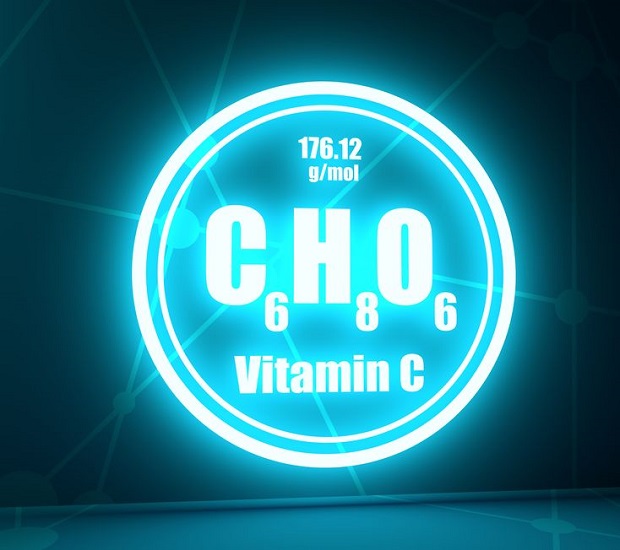
Chemical Properties of Vitamin C
- Molecular Formula: C6H8O6
- Molecular Weight: 176.12
- Boiling Point: 552.67 °C
- Melting Point: 191 °C
- Sensitive to prolonged exposure to air and light.
National Institutes of Health – National Library of Medicine – PubChem – Ascorbic Acid
At the microscopic molecular level, Vitamin C is an interlinked chain of six carbon, six oxygen, and eight hydrogen components with a molecular weight of 176.12. More precisely, this ascorbic acid molecule contains four hydroxyl groups and is sensitive to air, light, moisture, and the action of oxidizing agents and ions. [1]
A Very Versatile Vitamin

Without Vitamin C, the human body would be unable to synthesize collagen, which makes up 30% of the body’s protein. Collagen is critical for human skin, muscles, bones, ligaments, tendons, and connective tissues. [2]
Vitamin C also fuels the function of norepinephrine, a neurological transmitter of brain function and mood information. Among the vitamin’s many other human body functions are the synthesization of carnitine, a molecule that helps the metabolism process fat; the transformation of cholesterol into bile acids; and, perhaps most notably, vitamin C acts as an antioxidant, protecting proteins, carbohydrates, and other nutrients from oxygen damage. [3]
Recommended Daily Allowance

The amount of Vitamin C that a person needs to eat on a daily basis increases with age. It starts at the infant stage at around 40 to 50 milligrams per day and increases with age. The recommended daily allowance for adult females is 75 milligrams, while the recommended dose for adult males is 90 milligrams. Interestingly enough, if that adult smokes, the daily recommended Vitamin C allowance increases by 35 milligrams. [4]
Daily Maximums

For an adult, ingesting more than 2,000 milligrams of vitamin C per day can cause side effects, though usually not life-threatening. Because vitamin C is water-soluble, the body can easily expel excess through urine and feces, so overdose is rare but can occur. [5]
Resources
- [1] National Institutes of Health – National Library of Medicine – PubChem – “Ascorbic Acid.”
- [2] Linus Pauling Institute – “Collagen: What It Is, Types, Function, & Benefits.”
- [3] Dietary Reference Intakes for Vitamin C, Vitamin E, Selenium and Carotenoids. National Academy Press, 2000.
- [4] National Institutes of Health – National Library of Medicine – “Vitamin C – Health Professionals Fact Sheet.”
- [5] Medicinenet.com – “What Happens If You Take Too Much Vitamin C?“
DISCLAIMER: THIS WEBSITE DOES NOT PROVIDE MEDICAL ADVICE
The information, including but not limited to text, graphics, images, and other material on this website, is for informational purposes only. No material on this site is intended to be a substitute for professional medical advice, diagnosis, or treatment. Always seek the advice of your physician or other qualified healthcare providers with any questions you may have regarding a medical condition or treatment before undertaking a new health care regimen, and never disregard professional medical advice or delay in seeking it because of something you have read on this or any other website.





